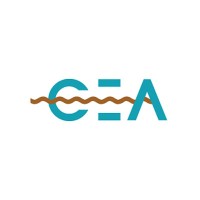
It is important to consider several factors when looking for a job in Boston, MA as an Environmental Consultant. These factors include education, experience, pay, and job titles. Surprised to learn that the pay scale for Environmental Consultants in Boston MA can vary from one company or another?
Experience
The Boston Environmental Corporation is an environmental consulting firm that provides full-service services. It specializes in soil remediation and disposal. The firm was established in 2001 and has a diverse client base that includes healthcare facilities, developers, and engineering firms. Laura Brown has extensive knowledge in all aspects of environmental management, including sampling for PCBs and wastewater, permitting, planning, and prevention of petroleum spillage. She also has seven year experience running her own environmental consulting agency.
The average salary for Environmental Consultants is dependent on the company and where you live. A professional with experience will be paid more than someone who is just out of school or has never worked. Additional pay may come from additional educational or non-work experience. Higher pay will be offered to candidates with management experience as well as a degree.

Education
Boston-based companies should be focusing their efforts on education and sustainability. These companies can assist institutions in achieving their sustainability goals, while also managing costs and increasing student engagement. By developing innovative energy programs, they can help institutions reduce their carbon footprint and maximize energy efficiency. They can also help clients create renewable energy systems, and take part in renewable energy market.
The base salary for an environmental consultant varies by position. The basic salary ranges from $71,276 to $93,087 in a typical year. This base salary can also include bonuses and profit sharing. Total pay is the total of the base pay plus any bonuses, overtime or other cash earnings. The salary for an Environmental Consultant in Boston can vary greatly depending on where you live and what company you work for.
Pay
An average salary for an environmentally-minded consultant in Boston would be $60,000. Similar jobs may pay higher salaries. Your experience is also important in determining your salary. The higher your experience, the more you can earn. The cost of living in large cities is also a factor that affects the pay.
Environmental consultants manage a variety of projects. They conduct site investigations, manage remediation projects, and advise on new technology/regulation issues. The job includes communicating new business information and interpreting complex data. They also coordinate corrective actions. While an individual's level of education or experience may affect their exact salary, the ranges below are representative of the field.

Titles of jobs
Multi-disciplinary professionals with extensive knowledge in many aspects of the environmental environment, are known as environmental consultants. Their services include assessing environmental risks and advising businesses about environmental policy, management, and other issues. They are also committed to protecting the environment and helping their clients avoid costly legal actions.
The salary of an environmental consultant may vary by industry and location. As an environmental consultant you will plan and coordinate corrective actions for potential and current hazards. Many times, you will be responsible for managing remediation and site investigation activities in the chemical industry. Other responsibilities include communicating new business information and competing conditions.
FAQ
How can I start an LLC consulting company?
You must first figure out what you want to do as a service provider. You must then ensure you are qualified to offer those services. It is also possible to locate someone who has done the same job as you and find out how they do it.
Once you have a clear idea of what you are offering, you can start to identify your target market. You may have to create more if there aren’t enough.
You will then need to decide if it is worth starting your own business, or hiring others to do it.
Another option is to get a state license. This requires a lot of paperwork and legal fees.
How do you choose a consultant to help me?
Three main factors should be considered:
-
Experience - How experienced is this consultant? Is she a beginner? Intermediate? Advanced? Expert? Does her resume show that she has the necessary skills and knowledge?
-
Education – What did the person learn in school? Did he/she continue to take relevant courses after graduation? Are we able to see evidence of his/her learning through the way he/she writes
-
Personality - Do we like this person? Would we want him/her to work for us?
-
These questions are used to determine if the candidate is right for us. If the answers to these questions are unclear, it might be worth a first interview to get more information about the candidate.
What can I expect from my consultant?
You should hear back from your chosen consultant within a few days. They will usually ask for information about your company, including its mission, goals, products, services, budget, etc. Then, they'll send over a proposal outlining the scope of work, estimated time frame, fees, deliverables, milestones, etc.
If all goes well, the parties will then negotiate a written agreement. The terms of the contract will depend on the type of relationship between the two parties (e.g., employer-employee, employer-independent contractor).
If all goes well, the consultant will start working immediately. The consultant will have full access to your files and resources. You'll also have access to their skills and knowledge.
You shouldn't assume, however, that every consultant is an expert in all areas. It takes practice, effort and practice in order to be an expert in any area you consult. Don't expect your consultant know everything about your company.
What happens after the consultant has finished the job?
After the consultant completes his/her work, the final report will be submitted detailing the findings of their work. This report details the project timeline, deliverables, as well any other pertinent information.
Then, you'll review the report and decide whether the consultant met your expectations. If you are not satisfied with the consultant's report, you have the option to ask for modifications or to terminate your contract.
Statistics
- My 10 years of experience and 6-step program have helped over 20 clients boost their sales by an average of 33% in 6 months. (consultingsuccess.com)
- "From there, I told them my rates were going up 25%, this is the new hourly rate, and every single one of them said 'done, fine.' (nerdwallet.com)
- On average, your program increases the sales team's performance by 33%. (consultingsuccess.com)
- Over 62% of consultants were dissatisfied with their former jobs before starting their consulting business. (consultingsuccess.com)
- 67% of consultants start their consulting businesses after quitting their jobs, while 33% start while they're still at their jobs. (consultingsuccess.com)
External Links
How To
What does a typical consultant's day look like?
A typical day will vary depending on the type of work you are undertaking. You will be spending time researching, planning new ideas, meeting with clients, and creating reports.
Clients will often meet with you to discuss their problems. These meetings can take place over the phone, via email, online, or face to face.
Also, proposals are documents that outline your ideas or plans for clients. These proposals will be presented to clients by you and a mentor.
After all the preparation, you'll need to start creating content. This could include writing articles, designing websites or editing photos.
Based on the scope and complexity of the project you may need research to obtain relevant statistics. For example, you may need to find out how many customers you have and whether they are buying more than one product or service.
Once you have gathered enough information, it's time to present your findings to clients. Your findings can be presented orally or written.
Finally, you must follow up with clients after the initial consultation. You could phone them occasionally to check on things or send an email asking them to confirm that you have received their proposal.
While this can be a slow process, it's essential to remain focused and maintain good working relationships with clients.